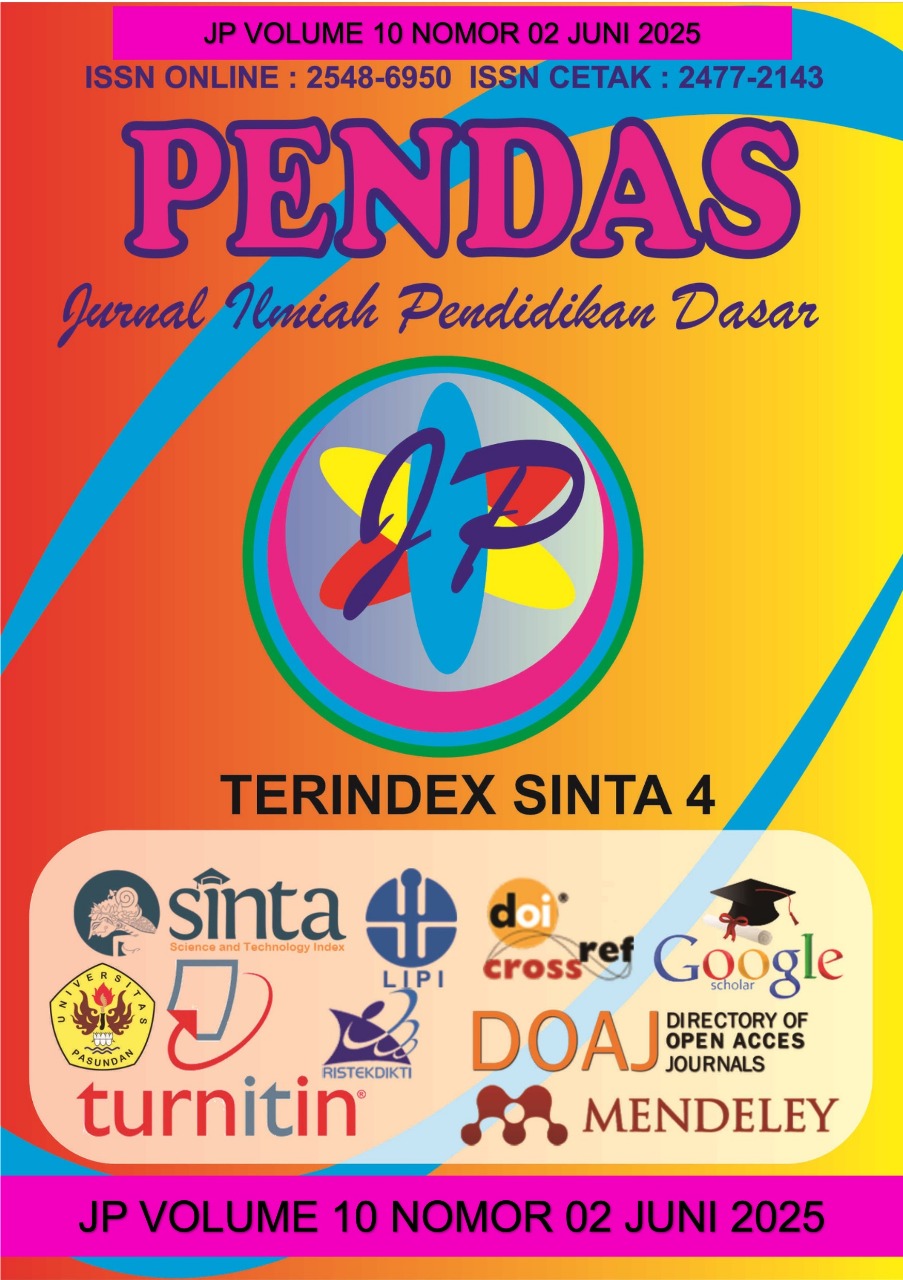PENGARUH MODEL PEMBELAJARAN PROBLEM BASED LEARNING TERHADAP HASIL BELAJAR MATERI PENGELOLAAN KATA SANDI DAN AUTENTIKASI DUA LANGKAH PADA KELAS X SMAN 7 MALANG
DOI:
https://doi.org/10.23969/jp.v10i2.25834Keywords:
learning outcomes, digital literacy, digital security, pre-service teacher leadership, problem-based learningAbstract
This study highlights the importance of digital literacy and awareness of cybersecurity in 21st-century education, particularly at the high school level. It aims to examine the effect of the Problem-Based Learning (PBL) model on students' learning outcomes regarding password management and two-factor authentication. The research employs a quasi-experimental method with a one-group pretest-posttest design, involving 10th-grade students at SMAN 7 Malang as the subjects. The research instruments include learning outcome tests and student activity observation sheets. The results indicate that the application of PBL significantly impacts students' learning outcomes, as evidenced by the statistically significant difference between pretest and posttest scores. In addition to promoting active student engagement, this model proves effective in fostering conceptual understanding and critical awareness of digital security issues. These findings suggest that prospective teachers possess strong pedagogical and digital literacy competencies and are capable of designing innovative, contextual learning. Consequently, this research reflects the leadership of future educators in providing solutions for learning based on the needs of the times and supporting the achievement of Indonesia’s Vision 2045.
Downloads
References
Afandi, D. D., Subekti, E. E., & Saputro, S. A. (2024). Pengaruh Model Pembelajaran Problem Based Learning terhadap Hasil Belajar IPAS. Jurnal Inovasi, Evaluasi Dan Pengembangan Pembelajaran (JIEPP), 4(1), 113–120. https://doi.org/10.54371/jiepp.v4i1.370
Azizi, A. F., Tahir, M., Iriansyah, M. D. P., Kusumawati, W., Rahayu, R., Setyaningrum, R., & Ananta, W. O. (2024). ANALISIS PENTINGNYA EDUKASI KEAMANAN SIBER BAGI PENGGUNA MAHASISWA. Esensi Pendidikan Inspiratif, 6(2).
Husni Bt. Salam. (2020). Strategi Menulis Karya Ilmiah Model Pembelajaran Kolaboratif Berbasis Problem Based Learning pada Mahasiswa Administrasi Bisnis Politeknik Informatika Nasional. Jurnal Onoma: Pendidikan, Bahasa, Dan Sastra, 6(2), 693–703. https://doi.org/10.30605/onoma.v6i2.428
Kaseroan, E., Sumual, H., & Liando, O. E. S. (2022). Pengaruh Model Problem Based Learning Terhadap Hasil Belajar Simulasi dan Komunikasi Digital. Edutik : Jurnal Pendidikan Teknologi Informasi Dan Komunikasi, 2(6), 850–859. https://doi.org/10.53682/edutik.v2i6.6340
Lamada, M. S., & Wilma, M. (2021). Keaktifan Belajar Menggunakan Model Problem Based Learning Pada Mata Kuliah Jaringan Komputer. Jurnal Nalar Pendidikan, 9(1), 17. https://doi.org/10.26858/jnp.v9i1.20439
Lusiana, V. (2022). Penerapan Problem Based Learning Untuk Meningkatkan Motivasi Dan Hasil Belajar Siswa. ACTION : Jurnal Inovasi Penelitian Tindakan Kelas Dan Sekolah, 2(2), 165–177. https://doi.org/10.51878/action.v2i2.1198
Rofiqoh, J., Sucipto, T. L. A., & Basori, B. (2020). Pengaruh Blended Learning Menggunakan Think Pair Share Berbantuan Google Classroom Dengan Traditional Learning Terhadap Hasil Belajar Dan Motivasi Belajar Siswa. Jurnal Ilmiah Pendidikan Teknik Dan Kejuruan, 13(1), 11. https://doi.org/10.20961/jiptek.v13i1.22368
Sugiyono. (2013). metode penelitian kuantitatif dan kualitatif dan R&D. Alfabeta Bandung, 14, 330.
Sugiyono. (2014). Metode penelitian bisnis: pendekatan kuantitatif, kualitatif, kombinasi, dan R&D. Bandung: Alfabeta.
Syahputra, A., Suparno, S., Giatman, M., & Maulida, R. (2020). Perancangan Media Pembelajaran Interaktif Berbasis Model Pembelajaran Problem Based Learning Mata Kuliah Fisika Dasar. Jurnal Media Informatika Budidarma, 4(1), 245. https://doi.org/10.30865/mib.v4i1.1974
Yunda Assyuro Hanun, & Akhmad Asyari. (2023). Penerapan Model Pembelajaran Problem Based Learning Untuk Meningkatkan Hasil Belajar Siswa. Global Education Trends, 1(2). https://doi.org/10.61798/get.v1i2.43
Rouli, D., Siburian, P., & Mudjisusatyo, Y. (2023). Online learning training management model to improve teacher pedagogical competence.. https://doi.org/10.4108/eai.19-9-2023.2340406
Sarmadan, S. and Hali, F. (2021). The pedagogics competence of indonesian language education students as teacher candidates in microteaching. Al-Ishlah Jurnal Pendidikan, 13(3), 2363-2372. https://doi.org/10.35445/alishlah.v13i3.773
Setiawati, I., Hindriana, A., Widiantie, R., Nurlaelah, I., & Lismaya, L. (2021). Pedagogical competence in pre-service biology teacher through lesson study.. https://doi.org/10.4108/eai.12-12-2020.2305109
Yafie, E., Nirmala, B., Kurniawaty, L., Bakri, T. S. M., Hani, A. B., & Setyaningsih, D. (2020). Supporting cognitive development through multimedia learning and scientific approach: An experimental study in preschool. Universal Journal of Educational Research, 8(11), 113-123.
Downloads
Published
Issue
Section
License
Copyright (c) 2025 Pendas : Jurnal Ilmiah Pendidikan Dasar

This work is licensed under a Creative Commons Attribution 4.0 International License.














































